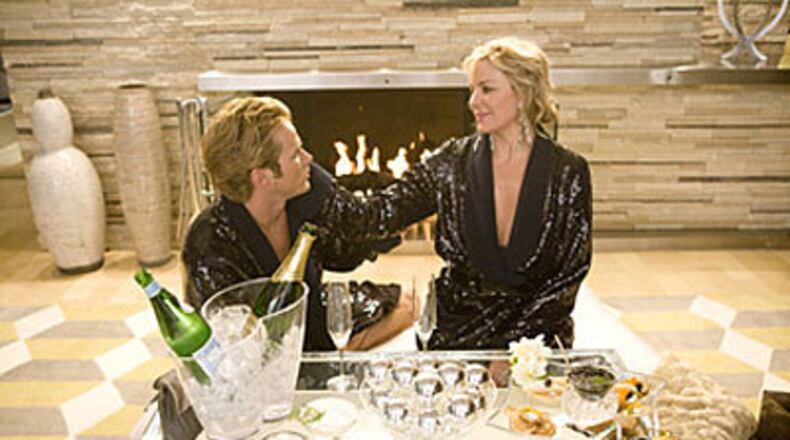- Genetic variation in the vasopressin receptor 1a gene (AVPRI1A) associates with pair-bonding behavior in humans. Walum, H., Westberg, L., Henningsson, S., et al. Proceedings of the National Academy of Sciences. Neuroscience, September 16; 105(37): 14153–14156 [↩]
- The Neurobiology of Pair Bonding: Insights from a Socially Monogamous Rodent. Young, K., Gobrogge, K., Liu, Y., et al. Front Neuroendocrinology, 2011 January;32(1): 53-69 [↩]
- Non-monogamy: risk factor for STI transmission and acquisition and determinant of STI spread in populations. Aral, SO, Leichliter, JS. Division of Sexually Transmitted Disease, The National Center for HIV/AIDS, Viral Hepatitis, STD and TB Prevention, Centers for Disease Control and Prevention. Sexually Transmitted Infections, 2010 Dec;86 Suppl 3:iii29-36 [↩]
- Non-Monogamy and Sexual Relationship Quality Among Same-Sex Male Couples. Parsons, JT, Starks, TJ, Gamarel, KE, et al. Journal of Family Psychology, 2012 Aug 20 [↩]
- Adult attachment and patterns of extradyadic involvement. Allen, E.S. and Baucom, D.H. Department of Psychology, University of North Carolina—Chapel Hill. Family Process, 2004 Dec;43(4):467-88 [↩]
- Adult attachment and patterns of extradyadic involvement. Allen, ES and Baucom, DH. Department of Psychology, University of North Carolina—Chapel Hill. Family Process, 2004 Dec;43(4):467-88 [↩]
For many of us, the urge to couple up is a strong one. It might even be programmed into our DNA[1][2]. But does love mean never dating or having sex with other people?
Several years ago, I decided to challenge the idea that the only way to a loving, committed relationship was to be monogamous. My then-boyfriend and I decided to try an open relationship. We were committed to each other, referred to each other as boyfriend and girlfriend, and were both allowed to date and be physically intimate with other people. We eventually broke up (for various reasons, most of which weren't related to our openness), but since then I've remained interested in rethinking relationships — and it turns out I'm not alone.
Nonmonoga-me — Current Trends
Estimates suggest there are more than half a million openly polyamorous families in the U.S., and in 2010, an estimated eight million couples were practicing some form of nonmonogamy[3]. Even among married couples, open relationships can be successful; some studies suggest they're common in gay marriages[4].
For today's 20- and 30-somethings, these trends are meaningful. More than 40 percent of millenials think marriage is "becoming obsolete" (compared to 43 percent of Gen Xers, 35 percent of Baby Boomers, and 32 percent of people aged 65-plus). And almost half of millenials say they view changes in family structures positively, compared to only a quarter of elderly respondents. In other words, monogamy — though a perfectly viable choice — doesn't workfor everyone.
It certainly wasn't working for me. Blame it on a couple unhealthy relationships in my youth: For whatever reason, in my mind "monogamy" had come to be associated with possessiveness, jealousy, and claustrophobia — not quite what one desires from everlasting love. I wanted to care about someone without feeling owned by them, and I wanted that someone to feel the same way. Add to that the fact that I'd been single for a while (after having been in a monogamous relationship for even longer) and — I'm woman enough to admit it — wasn't ready to give up the freedom to flirt with strangers. Beyond that, I wasn't sure what I wanted, exactly, but I knew I didn't want to feel suffocated by a partner. So when I started dating… let's call him "Bryce"… I geared myself up for hurt feelings, got over my own awkwardness, and broached it: Have you ever thought about having an open relationship?
Open relationships tend to fall into two general categories, says Greatist Expert and sex counselor Ian Kerner: Couples might negotiate a nonmonogamous arrangement like the one I had with Bryce, in which each individual has the freedom to date and/or have sex with people outside the relationship. Or couples will choose to swing, adventuring outside their monogamous relationship as a unit (having sex with other people together, as in a three-or-more-some). But these categories are pretty fluid, and they shift depending on a given couple's needs and boundaries[5].
Monogamy = Monotony? — Why Couples Go Rogue
The tricky thing about relationships is they're all different, so there's no "one reason" why people decide to explore alternative relationship models[6].
Still, there are a wide range of theories about why monogamy hasn’t proved universally satisfying...
To read the rest of this article and find out what the author decided about open relationships, go to Greatist.com.
About the Author
Keep Reading
The Latest
Featured


